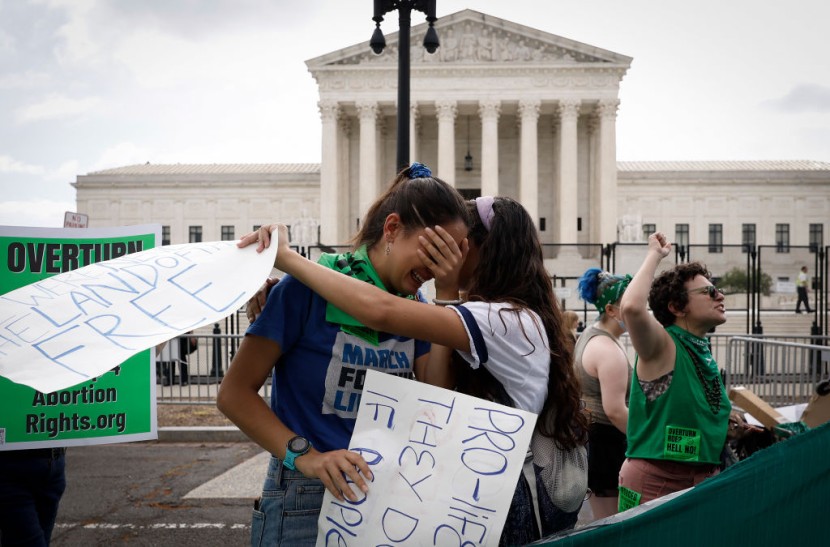
The Supreme Court of the United States on Friday overturned Roe v. Wade, the landmark ruling that established the constitutional right to abortion in the country, in a 6-3 decision.
The court's controversial but expected ruling gives individual states the power to set their abortion laws without concern of running afoul of Roe, which had permitted abortions during the first two trimesters of pregnancy.
Justice Samuel Alito wrote for the court majority, stating that the 1973 Roe ruling, as well as the repeated subsequent decisions of the Supreme Court reaffirming it, were "egregiously wrong," with "exceptionally weak" arguments, and they, were so "damaging" that they amounted to "an abuse of judicial authority," therefore they "must be overruled."
Justice Clarence Thomas, appointed by the first President Bush, and the three Justices appointed by Pres. Donald Trump, Justices Neil Gorsuch, Brett Kavanaugh, and Amy Coney Barrett, joined the Alito opinion, as per an NPR report.
Chief Justice Roberts, appointed by Pres. George W. Bush, concurred in the ruling and would have confined the decision to sustain the Mississippi law at issue in the case, which prohibited abortions beyond 15 weeks.
Those who dissented were Justices Sonia Sotomayor and Elena Kagan, both appointed by Pres. Obama, as well as Justice Stephen Breyer, who was selected by Pres. Clinton.
The justices wrote: "With sorrow - for this Court, but more, for the many millions of American women who have today lost a fundamental constitutional protection - we dissent."
What Will Happen Next?
The ruling, the majority of which was leaked in May, implies that abortion rights will be immediately restricted in almost half of the states, with other limitations certain to follow. Abortion won't be accessible in a significant portion of the country.
Other states intend to keep their more lenient restrictions on pregnancies being terminated.
When the Supreme Court issued its decision, proponents of abortion rights quickly denounced it, while opponents of abortion applauded the achievement of a long-awaited goal.
Women who sought to terminate their pregnancy had few choices before the Roe decision because abortion was illegal in many states. Following Friday's decision, women in vast areas of the United States may have to choose between going to a state where the procedure is still available and lawful, purchasing abortion pills on the internet, or having a potentially risky illegal abortion, per Reuters.
A Victory For Conservatives
Currently, legislation defending the right to an abortion exists in more than a dozen states. In recent years, several Republican-led states have approved various abortion restrictions contradicting the Roe ruling.
Offering another route to outlawing abortion is "trigger bans," which are more recent laws that anti-abortion rights politicians lobbied through in several states in anticipation of the Supreme Court's decision. According to CRR and Guttmacher, there are similar laws in effect in about 15 states, however, they are divided into various groups and are located in the South, West, and Midwest.
The National Abortion Federation have recorded thousands of crimes against abortion providers during the 1970s, including 11 murders, 42 bombings, 196 arsons, and 491 assaults since 1977, according to a report from Forbes.
Related Article: Republicans Oppose Bipartisan Gun Deal as Senate Moves Forward To Pass New Legislation
© 2025 HNGN, All rights reserved. Do not reproduce without permission.








